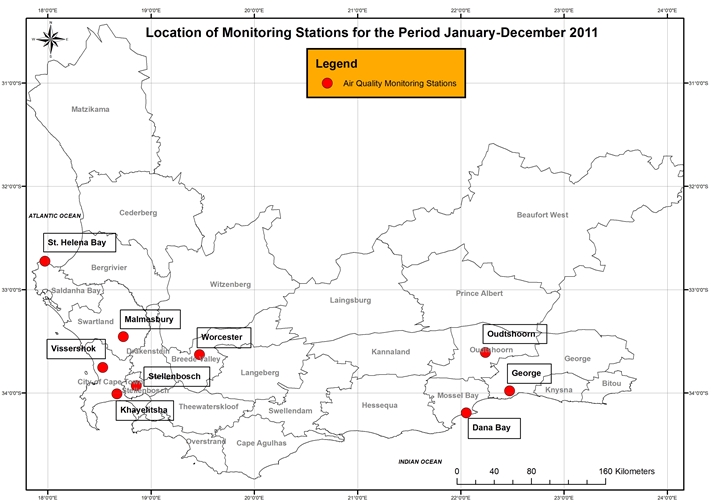
News
Handover of First Air Emission Licence
Western Cape Provincial Minister of Local Government, Environmental Affairs and Development Planning, Anton Bredell, today handed over the first Atmospheric Emission Licence (AEL) for a refinery in South Africa to PetroSA, which is located in Mossel Bay.
"This milestone truly defines our ability as different spheres of government, civil society and the economic industry to become 'Better Together'. This principle is about holding hands to preserve our natural environment and the air that we breathe," said Minister Bredell.
Scientific research has proven that air emissions from the combustion of fossil fuels and other emission sources are largely responsible for raising temperatures on earth, and that if uncontrolled, will result in global warming - a situtation that has dire consequences for human health and the natural environment.
The National Environmental Management: Air Quality Act (Act No 39 of 2004) defines air quality that is not harmful to health and well-being using ambient air quality standards. Further, it provides for regulatory tools, such as AEL licensing and mandates for government, to deliver the desired outcomes in terms of managing air quality.
Industrial processes that may have an adverse impact on ambient air quality have been categorised as listed activities. It is the responsibility of organisations or industries to check against the following broad description of activities, to assess if an application for an AEL must be submitted to the relevant authority for processing and final approval.
| CATEGORY | BROAD ACTIVITY DESCRIPTION |
| 1 | Combustion installations. |
| 2 | Petroleum industry, the production of gaseous and liquid fuels as well as petrochemicals from crude oil, coal, gas or biomass. |
| 3 | Carbonisation and coal gasification. |
| 4 | Metallurgical industry. |
| 5 | Mineral processing, storage and handling. |
| 6 | Organic chemicals industry. |
| 7 | Inorganic chemicals industry. |
| 8 | Disposal of hazardous and general waste. |
| 9 | Pulp and paper manufacturing activities, including by-products recovery. |
| 10 | Animal matter processing. |
Minister Bredell said: "Air quality governance is about sharing the responsibility between the different spheres of government. It involves establishing ambient air quality standards, as well as air quality management planning and reporting. While there is a constant need to work together, it is imperative that we firstly acknowledge our duty of care - as a government, as citizens and as the various social institutions - to preserve and protect our environment for future generations."
Environmental legislation presents a shift from source-based air pollution control to a receiving environment approach. Key features of the new approach to air quality governance include:
- Sharing of air quality governance responsibilities between national, provincial and local government.
- Establishing ambient air quality standards.
- Planning and reporting of air quality management by all spheres of government.
- Making various regulatory tools or measures available to government, for implementing and enforcing air quality management interventions in order to achieve and maintain acceptable ambient air quality.
- Promoting cost-optimised mitigation and management measures.
- Providing access to information and public consultation.
The Western Cape Department of Environmental Affairs and Development Planning currently operates an ambient air quality monitoring station in the Dana Baai area. This station allows the department to assess the quality of air that communities breathe. It also forms part of the larger Ambient Air Quality Monitoring Network in the province that aims to provide an overall picture of the state of air quality in the Western Cape.
Aziel Gangerdine
Departmental Spokesperson
Tel: 021 483 4643
Cell: 071 866 9887
Fax: 021 483 3211
E-mail: aziel.gangerdine@westerncape.gov.za
Website: www.westerncape.gov.za/eadp


